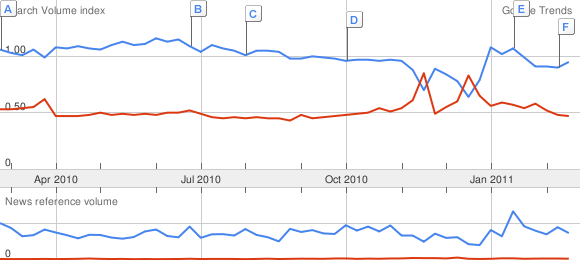Technology for the post-search world
On the road this week to attend and present at the PeopleMatter Collaborate '14 event, so today's take will be a short one, and really is not much more than a recommendation to check out this fascinating piece on Quartz titled This is what comes after search, a really interesting look at how the way we interact with the web (particularly on mobile devices) is changing.
Long story short, we don't really 'search' in the traditional sense, by typing some words into a box on Google.com, nearly as much on mobile devices as we traditionally have on personal computers, (where 'searching' was essentially the only way to find anything).
And since more and more the only thing that really matters is mobile, this change is user behavior and preferences for information discovery are having a pretty profound impact on both the major sellers or search, (Google, Yahoo, Microsoft), and the new companies that are developing technologies that are meant to deliver the next generation of 'search', where searching happens automatically, is context-aware, and is personalized for you.
Here is a excerpt from the piece on Quartz to give you an idea of what the 'post-search' world might look like:
In the old days, if you wanted to do something - navigate to the restaurant where you've got a dinner reservation - you might open a web browser and search for its address. But in the post-search world of context - in which our devices know so much about us that they can guess our intentions - your phone is already displaying a route to that restaurant, as well as traffic conditions, and how long it will take you to get there, the moment you pull your phone out of your pocket.
Manually searching for things, especially for basic information like the names of places or their locations or details about a person with which you are about to meets just seems kind of old school, kind of a 2002 way to interact with information.
Earlier this week I posted about Microsoft's Oslo project, the beginnings of their attempt at making 'search' less onerous and even unnecessary for the people in organizations that have pretty much their entire work lives tied up in Microsoft Office applications. That project, and the ones that are detailed in the Quartz piece both serve as signals of a sort, that the days of you having to figure out what it is you are looking for, then manually issuing a request to some kind of search tool to help you find the right information, and finally you figuring out which choice to make from hundreds or thousands of options are perhaps drawing to a close.
For the solution providers that will thrive in the second part of this decade, it's not about making technology that helps you find things anymore. It is about making technology that delivers the right information, in the right context, before the user even had to search.

 Steve
Steve




